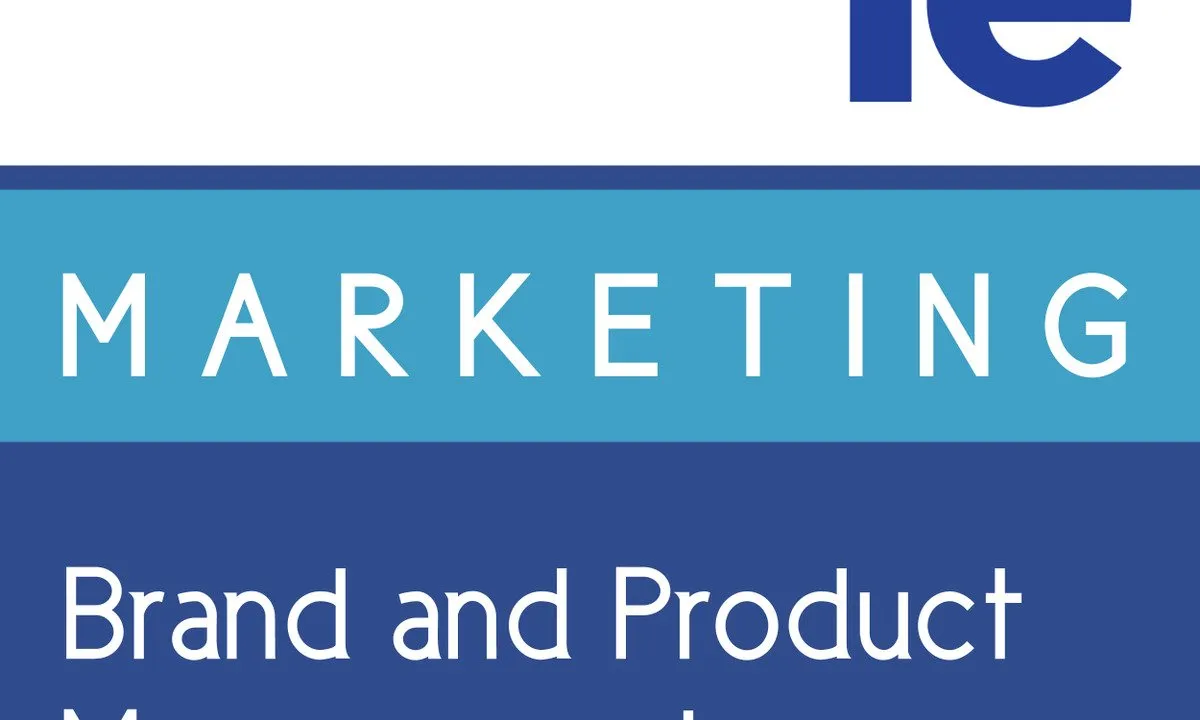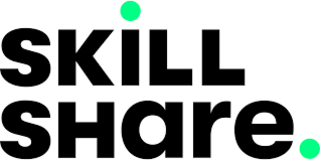
Brand and Product Management 
This course provides the essential knowledge to develop a successful product and brand strategy. Learn how to create an activity plan, define metrics for success, and adjust strategies under a test and learn methodology. Gain the skills to bring your brand strategy to life both externally and internally. ▼
ADVERTISEMENT
Course Feature
![]() Cost:
Cost:
Free
![]() Provider:
Provider:
Coursera
![]() Certificate:
Certificate:
Paid Certification
![]() Language:
Language:
English
![]() Start Date:
Start Date:
10th Jul, 2023
Course Overview
❗The content presented here is sourced directly from Coursera platform. For comprehensive course details, including enrollment information, simply click on the 'Go to class' link on our website.
Updated in [March 06th, 2023]
Identify the critical information needed to develop a product and brand strategy that generates both quick-wins and long-term value. By completing this course, you will be in position to create an activity plan to bring your brand strategy to life - both externally towards consumers and internally to employees. You will be able to define the right metrics for determining success in the implementation of your product and brand strategy, considering any adjustments that may need to be made under a test and learn methodology.
Luis Rodriguez Baptista - a professor at IE University and Marekting Consultant - will guide you through six modules that look at first understanding the challenge of managing products through their 'life-cycle' and culminates with learning how to equip your employees with knowledge of how to deliver on your brand promise. The course features interviews with consumer and industry professionals, which help illustrate the importance of brand strategy.
Brand and product management is a unique course which enables you to first understand the importance of brand and product management and then use brand development, architecture and portfolios, in order to achieve success.
(Please note that we obtained the following content based on information that users may want to know, such as skills, applicable scenarios, future development, etc., combined with AI tools, and have been manually reviewed)
Learners can learn the following from this course:
1. Product Lifecycle: Understand the different stages of a product's lifecycle and how to manage them effectively.
2. Product Demand Estimation: Learn how to accurately estimate the demand for a product and how to adjust the strategy accordingly.
3. Brand Development and Launching: Develop a brand strategy and learn how to launch it successfully.
4. Competitors Analysis: Analyze competitors and their strategies to gain a competitive advantage.
5. Brand Essence and Identity: Understand the importance of brand essence and identity and how to create a strong brand identity.
6. Brand Architecture: Learn how to create a brand architecture that is effective and efficient.
7. Brand Equity: Understand the concept of brand equity and how to measure it.
8. Brand Portfolio: Learn how to create a brand portfolio that is effective and efficient.
9. Customer Experience Journey: Understand the customer experience journey and how to create a positive customer experience.
10. Purchase Funnel: Learn how to create an effective purchase funnel and optimize it for maximum conversions.
11. Key Customer Touchpoints: Identify key customer touchpoints and how to use them to engage customers.
12. Brand Engagement: Learn how to create a brand engagement strategy that is effective and efficient.
[Applications]
Upon completion of this course, participants will be able to apply the concepts and tools learned to develop a product and brand strategy that generates both quick wins and long-term value. They will be able to create an activity plan to bring their brand strategy to life, both externally and internally, and define the right metrics for determining success when implementing their product and brand strategy. Additionally, they will be able to make any necessary adjustments under a test-and-learn methodology.
[Career Paths]
Job Position Paths:
1. Brand Manager: Brand Managers are responsible for developing and executing marketing strategies for a brand or product. They are in charge of creating and maintaining a brand's image, developing and managing campaigns, and analyzing market trends.
2. Product Manager: Product Managers are responsible for the development and management of a product throughout its lifecycle. They are in charge of researching customer needs, developing product features, and managing the product launch.
3. Marketing Manager: Marketing Managers are responsible for developing and executing marketing strategies for a company or product. They are in charge of creating and maintaining a company's image, developing and managing campaigns, and analyzing market trends.
4. Digital Marketing Manager: Digital Marketing Managers are responsible for developing and executing digital marketing strategies for a company or product. They are in charge of creating and maintaining a company's online presence, developing and managing digital campaigns, and analyzing digital market trends.
Developing Trends:
1. Brand Managers: As the digital landscape continues to evolve, brand managers are increasingly expected to have a deep understanding of digital marketing and analytics.
2. Product Managers: Product Managers are expected to have a deep understanding of customer needs and be able to develop product features that meet those needs.
3. Marketing Managers: As the digital landscape continues to evolve, marketing managers are increasingly expected to have a deep understanding of digital marketing and analytics.
4. Digital Marketing Managers: Digital Marketing Managers are expected to have a deep understanding of digital marketing and analytics, as well as a strong understanding of customer needs and how to reach them through digital channels.
[Education Paths]
1. Bachelor of Science in Marketing: A Bachelor of Science in Marketing degree provides students with the knowledge and skills needed to develop and implement effective marketing strategies. This degree program covers topics such as consumer behavior, market research, advertising, and public relations. Students will also learn about digital marketing, social media, and e-commerce. This degree is ideal for those who want to pursue a career in marketing, advertising, or public relations.
2. Master of Business Administration (MBA): An MBA in Brand and Product Management is a great way to gain the skills and knowledge needed to become a successful brand and product manager. This degree program covers topics such as brand strategy, product development, market research, and customer experience. Students will also learn about digital marketing, social media, and e-commerce. This degree is ideal for those who want to pursue a career in brand and product management.
3. Master of Science in Marketing: A Master of Science in Marketing degree provides students with the knowledge and skills needed to develop and implement effective marketing strategies. This degree program covers topics such as consumer behavior, market research, advertising, and public relations. Students will also learn about digital marketing, social media, and e-commerce. This degree is ideal for those who want to pursue a career in marketing, advertising, or public relations.
4. Master of Science in Brand and Product Management: A Master of Science in Brand and Product Management degree provides students with the knowledge and skills needed to develop and implement effective brand and product strategies. This degree program covers topics such as brand strategy, product development, market research, and customer experience. Students will also learn about digital marketing, social media, and e-commerce. This degree is ideal for those who want to pursue a career in brand and product management.
Course Syllabus
Launching new products and the challenge of managing their life-cycle.
At the end of this module, you will be able to demonstrate understanding of the product strategy concepts and develop the factual support to define your product strategy.Developing compelling brands that inspire your most critical stakeholders and impact your bottom line.
At the end of this module, you will be able to describe the different elements of a brand strategy and formulate a winning brand strategy.Knowing how to communicate your offering: Brand Architecture & naming.
At the end of this module, you will be able to define how to name your brand and explain how to develop a system to incorporate future products and brands.Building your brand portfolio.
At the end of this module, you will be able to map your brand portfolio to maximize its value to support growth.Translating your brand into compelling customer experiences.
At the end of this module, you will be able to define and describe the customer experience journey for your brand.Equipping and engaging employees to deliver on the brand promise.
At the end of this module, you will be able to explain and apply the process to “embed” a brand internally within the organization.Pros & Cons

Solid approach, valuable readings, reallife examples, helpful for all levels, easy to understand, applicable context.

Audio issues, no slides, dated content, no practical assignments, no slides, no interaction in discussion forums.
Course Provider

Provider Coursera's Stats at AZClass
Discussion and Reviews
0.0 (Based on 0 reviews)
Explore Similar Online Courses

Surface Pattern Design Fundamentals

Build eCommerce and Brand Sites to Start Working from Home

Python for Informatics: Exploring Information

Social Network Analysis

Introduction to Systematic Review and Meta-Analysis

The Analytics Edge

DCO042 - Python For Informatics

Causal Diagrams: Draw Your Assumptions Before Your Conclusions

Whole genome sequencing of bacterial genomes - tools and applications

Running Lean: Raise Your Odds of Building a Successful Product

Slides that Rock: Create an Awesome Presentation about Your Company Product or Service

Product Manager Interview Preparation
 Related Categories
Related Categories
 Popular Providers
Popular Providers
Quiz
 Submitted Sucessfully
Submitted Sucessfully
1. What is the main objective of the course?
2. What is the professor's name?
3. What is the course available in?
4. What is the course about?


Start your review of Brand and Product Management